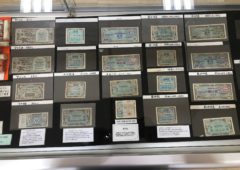2015.01.04
Plan ahead when importing goods to your doorstep
By David Higgins

Ordering goods from overseas through the Internet is easy but could entail surprising extra costs when they enter the country.
I was perusing my favorite brand name clothing website and decided to make an order. I don’t normally buy clothes online as I usually just purchase local items from my area. This time I thought, heck, why not ship it right to my Japanese local address. I’ll bite the bullet and pay the little extra money for shipping charges. Unfortunately, what I didn’t take into consideration was the import duty and taxes charged for importing products into Japan. My reasonable $150 USD clothing purchase grew to over $200 USD with duty, taxes and fees. I began to feel remorseful that I forgot to take those charges into account and I even started to regret buying the products outside of Japan in the first place.
It is not exactly cut and dry which items get hit with duties and taxes, but here is a brief overview. Duty rates in Japan vary from 0-30% with an average duty rate of 4.49%. Some are calculated by a pair of something, height, or weight. Other products can be imported free of duty. You must also pay the consumption tax of 8% on the total sum of the value and duty. Some items are waived from duty and tax if the value of the goods does not exceed ¥10,000 but this does not apply to leather goods, knitted apparel and footwear.
The products that get hit the most with import duties are leather shoes and boots. A consumer gets charged with a whopping 30% duty on a pair of boots and then slammed again with a consumption tax of 8% for a grand total of 38% on a product. This is definitely something that would deter consumers from importing these products and practically forces them to search domestically in Japan for leather shoes or boots. Tariffs such as this imposed on leather items are imposed to make them more expensive than domestically-made leather items.
Countries all over the world impose duty on products for a handful of reasons. The most typical reason is to protect the domestic industry such as the leather shoe and boot makers of Japan. Governments also restrict imports for political reasons. This kind of governmental restriction on trade is called a sanction. In times of war, adversaries will often prohibit all imports from each other, a measure known as an “embargo”.
Although the import duty on products can be complex despite the tariff charts being available in English, it is also tricky to understand and decipher. Some products that are in a gray area of categories may or may not end up having a duty imposed, but the final decision is made by the customs agent when the item reaches Japan. The online resource for tariff charges is available at http://www.customs.go.jp/english/tariff/2012_1/index.htm
If you have questions or want to contest the tariff applied to something you have imported, you can call the Customs Center. Just keep in mind the officers are Japanese speaking only. Their contact information is available on this page: http://www.customs.go.jp/english/c-answer_e/sonota/9301_e.htm
If you are a US service member stationed on Okinawa, fortunately, this doesn’t apply as APO addresses are the same as shipping something domestically within the United States. If you are shipping that doesn’t fit into the APO shipping guidelines due to size or weight, you may consider shipping it internationally. Before you ship anything it is best to calculate the costs beforehand or you could be in for an unwanted surprise in extra charges when your item arrives.
-
abhi

 2024.06.08
2024.06.08 2024.05.25
2024.05.25 2024.04.26
2024.04.26 2024.04.22
2024.04.22 2024.04.10
2024.04.10 2024.01.31
2024.01.31 2024.01.02
2024.01.02 2023.12.27
2023.12.27 2023.11.16
2023.11.16






